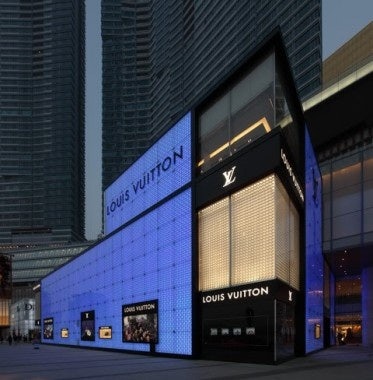City Tourism Officials Have Been Working Overtime Trying To Attract Non-Gamblers#

Much has been made of Macau's overtures to Asian tourists, as the city -- as notorious for its racy nightlife scene as its lavish casinos -- has sought to give itself a more family-friendly, culture-oriented makeover. While the recently opened Playboy Club at the Sands Macao could be interpreted as a step backwards in this regard (or a step forward, depending on how you look at it), it's simply the latest attempt by Macau tourism authorities and entertainment venues to diversify away from a singular focus on gaming revenue.
This summer, CNNGo took a look at Macau to see if the much-publicized plan to transform the gambling enclave into one of Asia's top tourist destinations is actually panning out. As Jing Daily wrote last year, new rules imposed by Beijing to decrease dependence on gaming revenue spurred efforts by city officials to encourage more multi-day tourism, MICE (meetings, incentives, conferences and events) and investment in arts infrastructure -- mostly in the hopes of attracting more mainland Chinese tourists to stay longer, spend more, and explore the city's cultural side rather than its notoriously seedy underbelly. But is it working?
From CNN:
Wynn is not alone in trying to wean itself off the casinos. If the latest developments on the Macau peninsula are anything to go by, the Asia gambling capital is well on its way to becoming a proper non-gaming holiday destination.
Mandarin Oriental Macau, the peninsula’s newest hotel with its opening just last month, is the first and only five-star hotel without a casino attached. Instead, the luxury hotel group is marketing itself as an “oasis” from the chain-smoking riffraff at the city’s gambling centers.
“The property offers a different perspective for those guests who want to relax in a calm environment, or for couples where one may enjoy gaming, but the other does not. And of course, families,” says a hotel spokeswoman. Taking the place of the casino is a massive mall called One Central.
...
On the other side of town, City of Dreams, helmed by Macau casino mogul Stanley Ho's son Lawrence, will be rolling out the ambitious “The House of Dancing Water,” a US$250 million family-friendly water show set to be the world’s largest. The theater has a performance pool that holds more water than five Olympic-sized swimming pools and seats some 2,000 viewers.
Like "Zaia", the poorly-received circus show staged by the Venetian Macau, “The House of Dancing Water,” is produced by Cirque du Soleil talent, this time by former Cirque showman Franco Dragone.
However, “The House of Dancing Water” may just succeed where "Zaia" failed. The exotic and heavily packaged "Zaia" was widely panned for its lack of resonance with Chinese audiences, who are used to Beijing acrobatics. But “The House of Dancing Water” draws on more traditional Asian themes. “[The show] draws creative inspiration from Chinese culture, particularly on the seven-emotions principle derived from the classical Confucian beliefs,” says Dragone.
It will take much more local insight such as this if the attempt to harness the non-gambling dollar in Macau is to succeed.
Macau definitely has a long way to go before it can sit among Asia's top tourism destinations. Fighting Hainan island for tropical getaway tourists and honeymooners, fighting Hong Kong for tax-free luxury shoppers, and fighting cheaper mainland Chinese tourist sites for tour groups and families, Macau tourism officials and hotel operators certainly have some convincing to do.